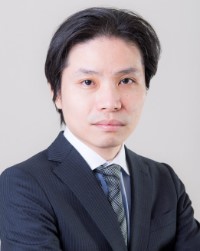International Arbitration 2025
Japan
Trends and Developments
Continued Growth in the Use and Awareness of Investor State Arbitration
In last year’s Trends and Developments article it was noted that Japan had seen an increased level of interest in investor state dispute settlement (ISDS), and a corresponding increase in the attention paid to the Japanese market by third-party litigation funders following Switzerland’s March 2023 instructions to Credit Suisse to write down its AT1 bonds to zero. Many international investors, including those in Japan, were substantially impacted by that decision. Interest in ISDS has only continued to grow, in part due to the notice of trigger letter sent to Switzerland on behalf of investors by the authors’ law firm. This resulting dispute is being pursued under the Japan-Switzerland Economic Partnership Agreement and is the subject of International Centre for Settlement of Investment Disputes (ICSID) arbitration proceedings.
At the same time, Japan has also seen some of its largest corporate players bring (and succeed in) high-profile claims against other states. In May 2025, it was reported that Spain was attempting to annul a December 2024 arbitral award made in favour of Japanese corporate giant Itochu, in respect of Itochu’s solar investments in Spain. In the same month, it was reported that Spain had similarly been ordered to pay another major Japanese company, Mitsui, almost EUR40 million in relation to Mitsui’s claims regarding its solar power investments. Other states also found themselves respondents to claims brought by Japanese investors, including an award won by Italian-Japanese contractor Dondi Kubota against Albania. This award (made under the International Chamber of Commerce’s arbitration rules) came to light in 2025 and was made in respect of a terminated contract to improve a sewer system in Albania’s capital city.
Overall, Japan has seen at least eight (publicly known) claims brought by its investors since the first claim in 2015, of which five were decided in favour of the investors, one was settled, one was discontinued, and one remains ongoing. Given long-term market trends, Japanese corporates’ increased overseas focus, and growing awareness of the potential utility of ISDS, the authors anticipate that growth in this space will accelerate further.
Bolstering Domestic Capbilities and Japan's Attractiveness as a Seat Remains a Priority
The promotion and development of international arbitration in Japan has been, and continues to be, a long-term project. Numerous articles over the years have each declared that their year of publication marked the year international arbitration was finally and firmly part of the dispute resolution space in Japan. Others bemoan that, compared to London or New York, the international arbitration space has remained relatively small in Japan, and sometimes conclude that international arbitration has somehow failed to establish itself there. The reality, however, is more nuanced: Japan has, through careful and continued efforts, taken steps to bolster the international arbitration space in Japan, through collaborative efforts by actors at all levels, from small enterprises to global trading houses, and from emerging practitioners to leading lights. In 2024, efforts by numerous market players intensified and the green shoots of organic growth emerged in Japan’s international arbitration market.
In 2018, the Cabinet Secretariat’s Inter-Ministerial Council for the Promotion of International Arbitration issued a report focussing on measures to revitalise international arbitration in Japan. In response, the Ministry of Justice commissioned a five-year survey and analysis beginning in June 2019, focusing on, inter alia, effective promotional measures. This was followed in 2020 by amendments to the laws regulating the handling of legal matters by non-Japanese lawyers and in 2023 by amendments to the Arbitration Act, aligning it more closely with the UNCITRAL Model Law.
In connection with the results of the five-year survey, a Practical Study Group on the Steady Promotion of International Arbitration in Japan – composed of civil procedure experts, international arbitration practitioners, corporate users of arbitration, and international arbitration institutions – was established under the auspices of the Inter-Ministerial Council. Over eight sessions, the Practical study group discussed the survey results and future steps, compiling a report released in January 2024. As highlighted in last year’s Trends and Developments article, the Report emphasised the need for close co-operation among public and private stakeholders and examined four main areas of focus for future action:
- making the international arbitration environment in Japan more attractive to international users;
- expanding publicity activities;
- developing human resources; and
- establishing arbitration hearing facilities.
The 2024 Policy Report
Building on these developments and its analysis, on 30 May 2024 the Cabinet Secretariat’s Inter-Ministerial Council for the Promotion of International Arbitration issued the “2024 Policy (Measures to Promote International Arbitration)” (the “2024 Policy Report”). This policy document, which builds upon the 2018 report, expresses Japan’s policy direction in supporting the promotion of international arbitration in Japan. It emphasises the importance of a robust system of international dispute resolution, particularly in light of Japanese corporations’ increasing transactions in Asia, especially South-East Asia. The data support this approach with Japanese corporates generating an increasing share of their earnings from overseas investment and, as of 2024, retaining just over half (51%) of their foreign direct investment earnings abroad for reinvestment.
The report highlights, amongst other things, that:
- the inclusion of arbitration agreements in commercial contracts should be promoted, in particular those that designate Japan as the seat, and, together with the Japan External Trade Organization (JETRO), arbitration agreements should also be promoted in contracts concluded by small and medium-sized enterprises;
- Japan as a country should actively participate in and contribute to the formation of international standards;
- cultivating the skills of, and number of, counsel and arbitrators within Japan is of the utmost importance as it will contribute to the effective use of arbitration by Japanese corporates;
- efforts at collaboration should be pursued, particularly with stakeholders overseas including, specifically, the ASEAN Secretariat and UNCITRAL; and
- the Japan Commercial Arbitration Association and other representative commercial institutions based in Japan should be promoted.
Concrete Steps to Promote International Arbitration in Japan
Consistent with the aspirations set out in the 2024 Policy Report, 2024 was a year of visible and substantial efforts to promote and expand international arbitration in Japan. One high-profile development was the successful hosting of Japan International Arbitration Week in Tokyo from 18 to 22 November 2024. This was the first event of its kind focussing on international arbitration held with the co-operation the Ministry of Justice, the Ministry of Economy, Trade and Industry, the Japanese Association of Arbitrators (JAA), and the Japan Commercial Arbitration Association (JCAA). The week attracted approximately 1,300 participants from Japan and abroad and featured a series of events co-hosted with multiple international arbitral bodies and industry associations, including with the Inter-Pacific Bar Association, the International Chamber of Commerce, UNCITRAL, the Singapore International Arbitration Centre, Singapore International Mediation Centre, and the Chartered Institute of Arbitrators. While the discussions covered a wide range of areas, two areas of notable focus stood out: (i) the benefits of Japan’s strengths as a seat of arbitration, and (ii) the development of “Arb-Med-Arb” procedures aimed at combining the best of arbitration and mediation. Building on this success, the next Japan International Arbitration Week has now been announced for 25 to 29 November 2025, with expectations of even greater success.
Broad-Based Organic Growth Alongside Some Consolidation
While Japan International Arbitration Week has commanded the majority of commentator attention in this space, organic growth across other institutes and fora has also continued to be visible. March 2024 saw the JAA co-host (together with the Japan Federation of Bar Associations, the Ministry of Justice, and the Japan International Dispute Resolution Centre (JIDRC)) JAA Arbitration Day 2024. The event featured international participants (including representatives from the ICSID) and examined, among other things, recent trends in Japan’s arbitral landscape, including ISDS and mediation. Other notable efforts include an event held in February 20025 organised by the Japan Institute for International Arbitration Research and Training, along with the Asia Development Bank and supported by UNCITRAL and the Ministry of Justice, to promote mediation in Asia. Another significant initiative is the engagement of academics and the government, as demonstrated via bilateral visits such as those of Malaysian officials to the Japan International Mediation Center and Doshisha University, both in Kyoto.
At the same time, signs of consolidation in the international arbitration space have also been visible. Certain domestic and international firms have seen partners (and in some cases, counsel and senior associates) leave without being replaced in the market, although a smaller number of firms have increased their practitioner headcount. Meanwhile, the JIDRC, established in 2018 – which, as noted in last year’s Trends and Developments article, closed its Tokyo and Osaka facilities – concluded its arbitration promotion activities as of March 2024. The JAA has since assumed responsibility for the arbitration promotion activities of the JIDRC and has expanded its organisational structure to accommodate these increased duties.
Continued Development of the Japan Commercial Arbitration Centre
In the 2024 Policy Report, the JCAA was specifically highlighted by the authors and is, arguably, now the preeminent arbitral institution in Japan. To support its continual growth and improvement, the JCAA has proactively taken steps to improve its offering – too numerous to comprehensively list – including the launch of an Advisory Board in October 2024. The Advisory Board, whose tasks include refining arbitral procedures and promoting best practices, includes well-known international practitioners such as Professor Klaus Sachs of Germany, Matthew Gearing KC of the United Kingdom, and Professor Nathalie Voser of Switzerland. In parallel with this, the JCAA’s Rule Review Committee continues its assessment of the institution’s rules with a view to issuing a public consultation draft in the medium term. The JAA has also pursued capacity-building and profile-raising steps, including participation in California International Arbitration Week in March 2025 and the conclusion of a co-operation-strengthening MOU with the Asian International Arbitration Centre in May 2025.
Continued Development of Awareness and Use of Third-Party Funding
In the past year, there has been significant development in the level of interest in third-party funding in Japan. Japanese clients, which generally have a high level of financial sophistication, have become more interested in exploring funding arrangements, both in theory and in relation to specific cases. There is also increased interest from funders, with many visiting the market and considering funding in particular matters. A particularly promising development has been the emergence of at least one Japan-based third-party funder. However, it should be noted that the domestic market for third-party funding in Japan remains in its infancy.
Particular areas of focus for Japanese companies include not just de-risking claims (although that remains a point of interest for Japanese companies, which often follow risk-averse decision-making processes), but also products such as enforcement support, portfolio funding, and insurance offerings (eg, after-the-event policies and related products).
Much of this surge in interest can likely be attributed to activity relating to potential claims by Japanese investors against Switzerland arising from the write down of Credit Suisse AT1 bonds, a topic explored above in the broader context of growing interest in investor-State arbitration. Many potential claimants have been considering third-party funding as a means to pursue such claims, often on a group basis, with numerous third-party funders devoting considerable attention to evaluating their viability. In at least two instances, funders have entered into funding agreements with Japanese claimant groups, a development that has been reported extensively in the mainstream press (both in Japan and abroad), contributing to the “buzz” around this topic in Japan. Although these are not by any means the first instances of Japanese claimants using third-party funding in international arbitration (or even in investment arbitration), this is the first time that the topic has received significant attention. It is anticipated that interest levels will continue to grow once claims are formally filed, likely accompanied by additional reporting in the press.
There have also been reports of third-party funding having been successfully used by parties in domestic Japanese litigation. If those reports are correct, they represent a significant advancement in the development of the Japanese third-party funding market. That is a development worth watching closely in the coming years.
From a regulatory perspective, the situation remains largely unchanged. There are no specific legal rules in Japan relating to or regulating third-party funding as an autonomous legal concept, and experience shows that it is possible to make legally valid funding arrangements. Parties have successfully and profitably implemented such arrangements, and there is growing acceptance among legal practitioners that, at least in some forms, third-party funding is not legally problematic.
Nevertheless, any potentially applicable ethical and other professional regulations must be strictly followed. It is therefore strongly advisable for any potential funding arrangement involving Japanese individuals or entities to be carefully scrutinised under Japanese law to ensure enforceability and avoid any legal violations. Key points to consider include the avoidance of profit-sharing between lawyers and non-lawyers, and the importance of maintaining the client’s right to instruct counsel and control the conduct of the case. Depending on the circumstances, other issues may also come to light, and due care and consideration should be taken at all times in this emerging area. Despite the growing level of interest in the topic, many lawyers in Japan remain unfamiliar with third-party funding, and therefore it is advisable for parties to select counsel with experience in this area.
In light of these developments, the question of whether and to what extend third-party funding should be subject to direct regulation in Japan has become an increasing important topic of discussion within the legal community and among legal regulators. While it is difficult to identify concrete progress at this time, organic discussions are underway and visible developments are expected in the not-too-distant future.
Mori Hamada & Matsumoto
Marunouchi Park Building,
2-6-1 Marunouchi
Chiyoda-ku
Tokyo 100-8222
Japan
+81 3 6266 8785
+81 3 6266 8685
yoshinori.tatsuno@mhm-global.com www.mhmjapan.com




